Angie Hemans

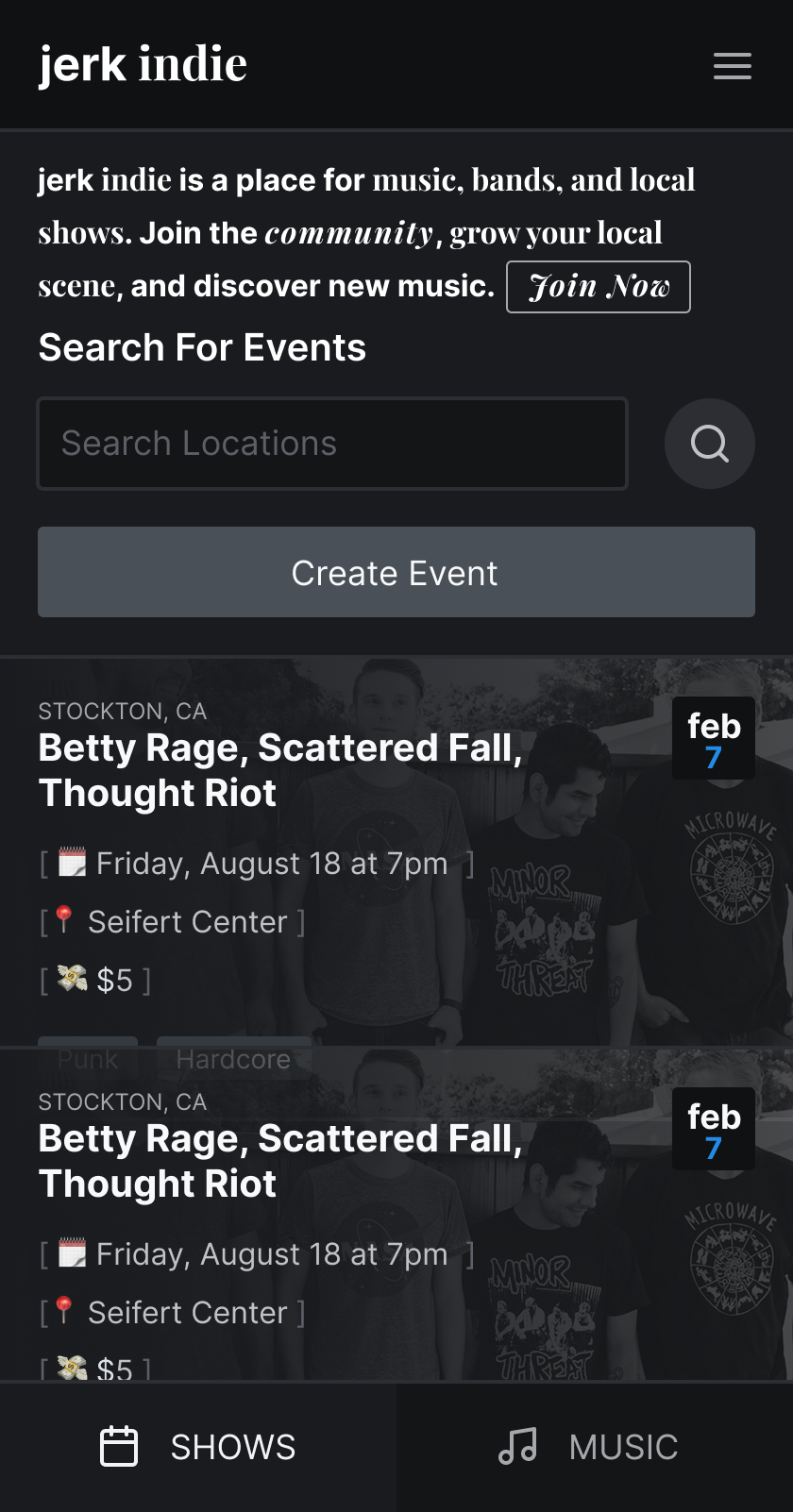
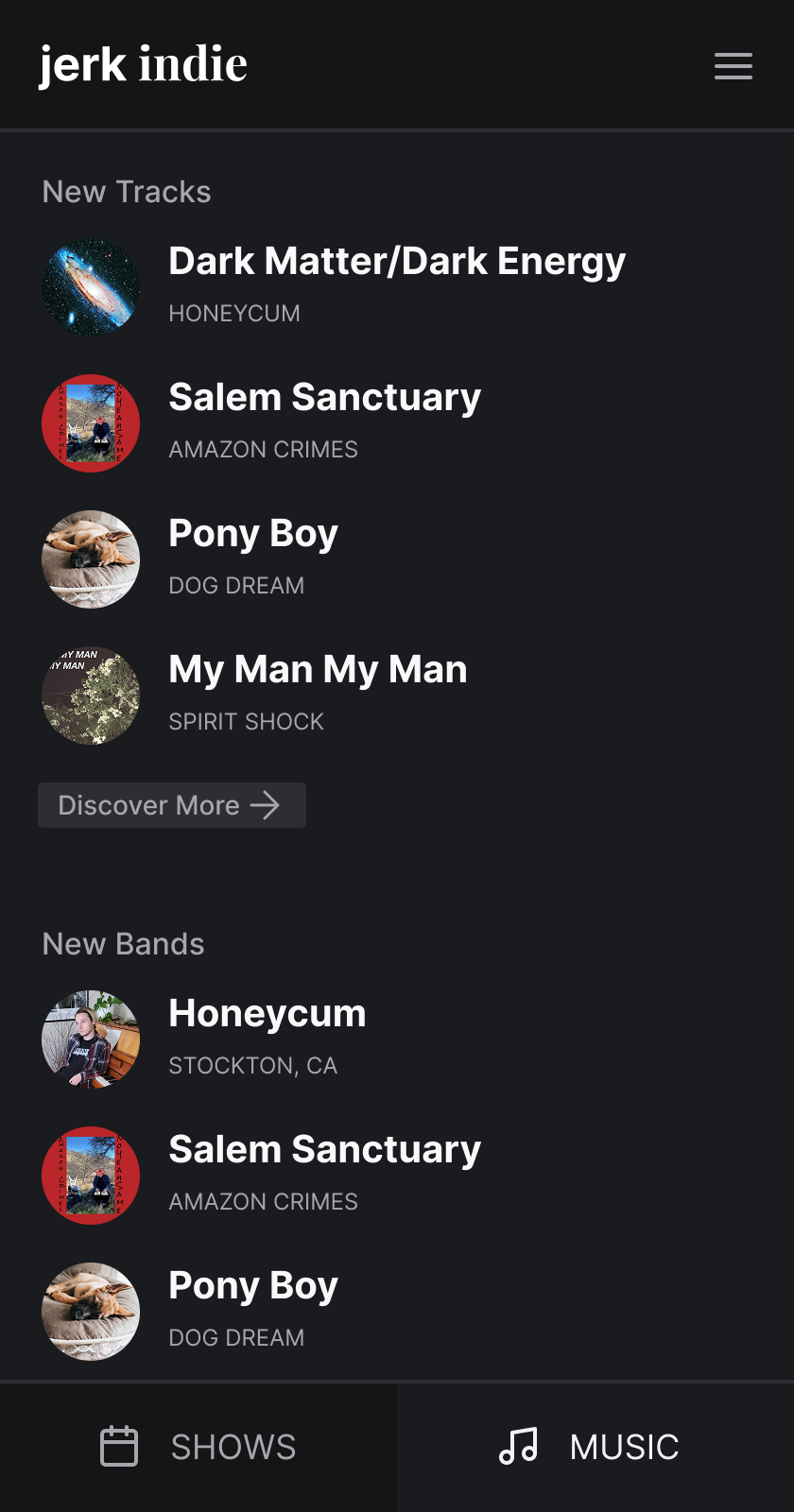
Jerk Indie: events for local music scenes
Jerk Indie was a grassroots web platform built to support local music scenes. It gave bands a space to create profiles, promote their shows, and connect with fans—while fans could follow bands, save shows, and share their own event experiences. We ran a beta version for a year, grew a community of over 300 regular users, and helped promote hundreds of live events.
My Contribution
UX/UI Design
Development
The Problem
Local music scenes often operate without centralized tools for promotion or discovery. Bands depend on scattered social media posts, word of mouth, or DIY promotion. Platforms like Bandsintown and Eventbrite tend to prioritize sponsored events, national tours, or large cities—making it nearly impossible for smaller bands in mid-sized or rural areas to gain visibility. As a result, fans miss out on local shows, and artists lose opportunities to build their following.
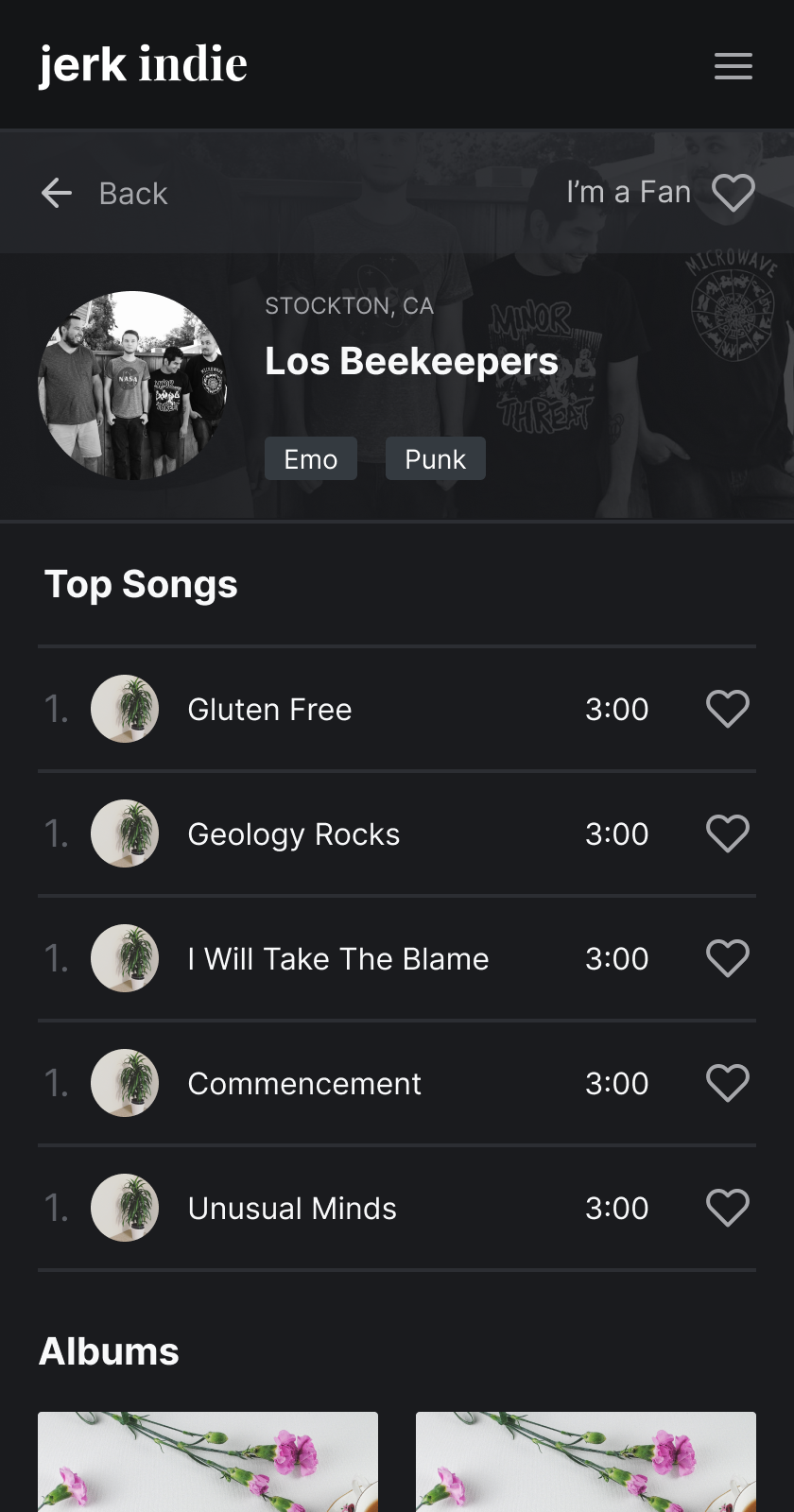
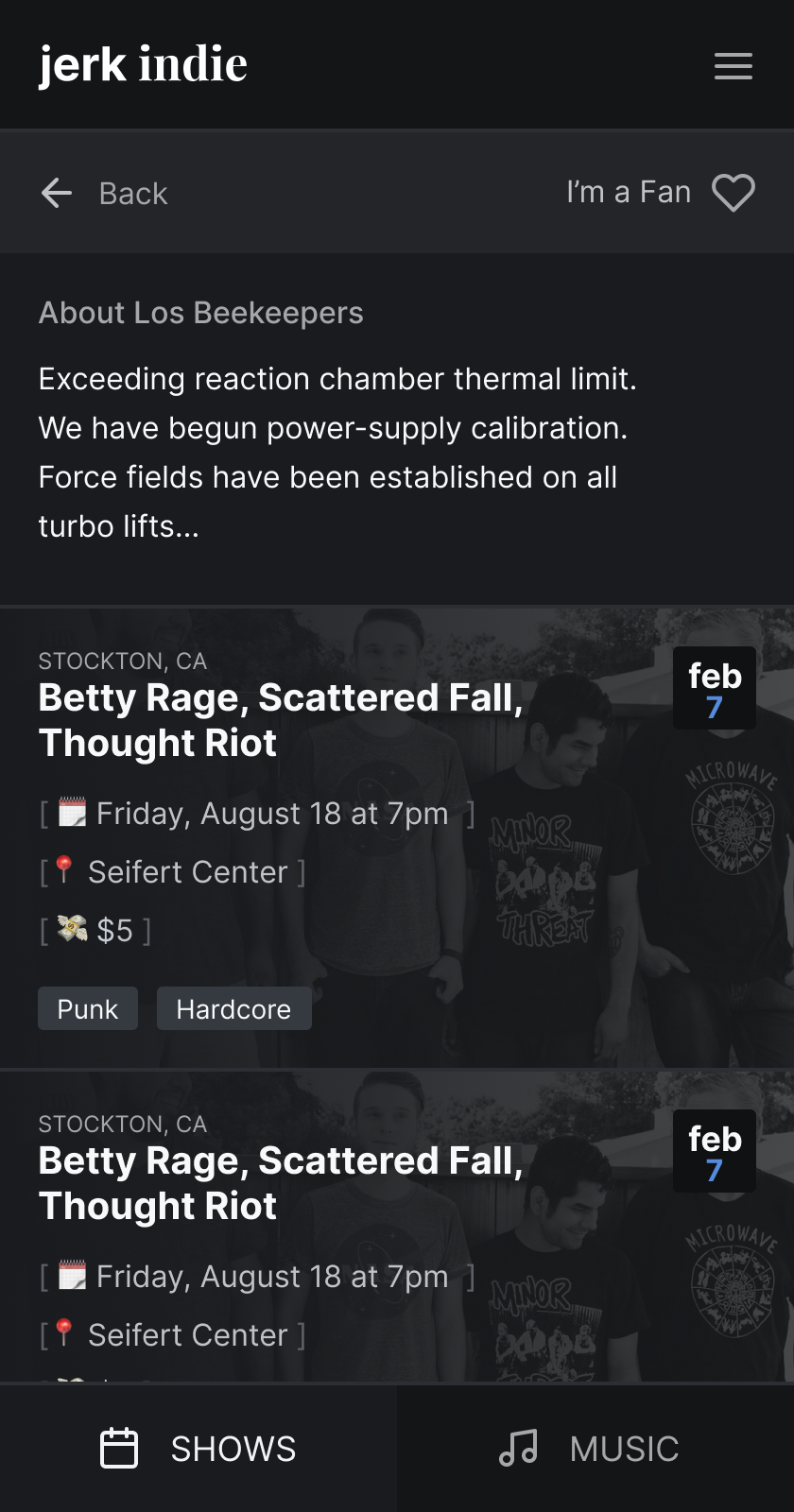
The Goal
Create a grassroots platform tailored to smaller music communities that helps bands promote their shows, connect with fans, and build local momentum—without being buried under pay-to-play algorithms or big-market bias.
Users
- Bands and Musicians: Independent and local acts looking for a simple way to promote shows and grow their audience.
- Fans and Showgoers: Music lovers who want to follow local bands, discover new events, and stay plugged into their scene.
Key Features
- Band profiles with upcoming events and past shows
- Event pages that automatically link all performing bands
- Fan accounts with the ability to follow bands and save events
- Event pages with comment threads and photo uploads post-show
- A community-oriented feed to surface upcoming local events
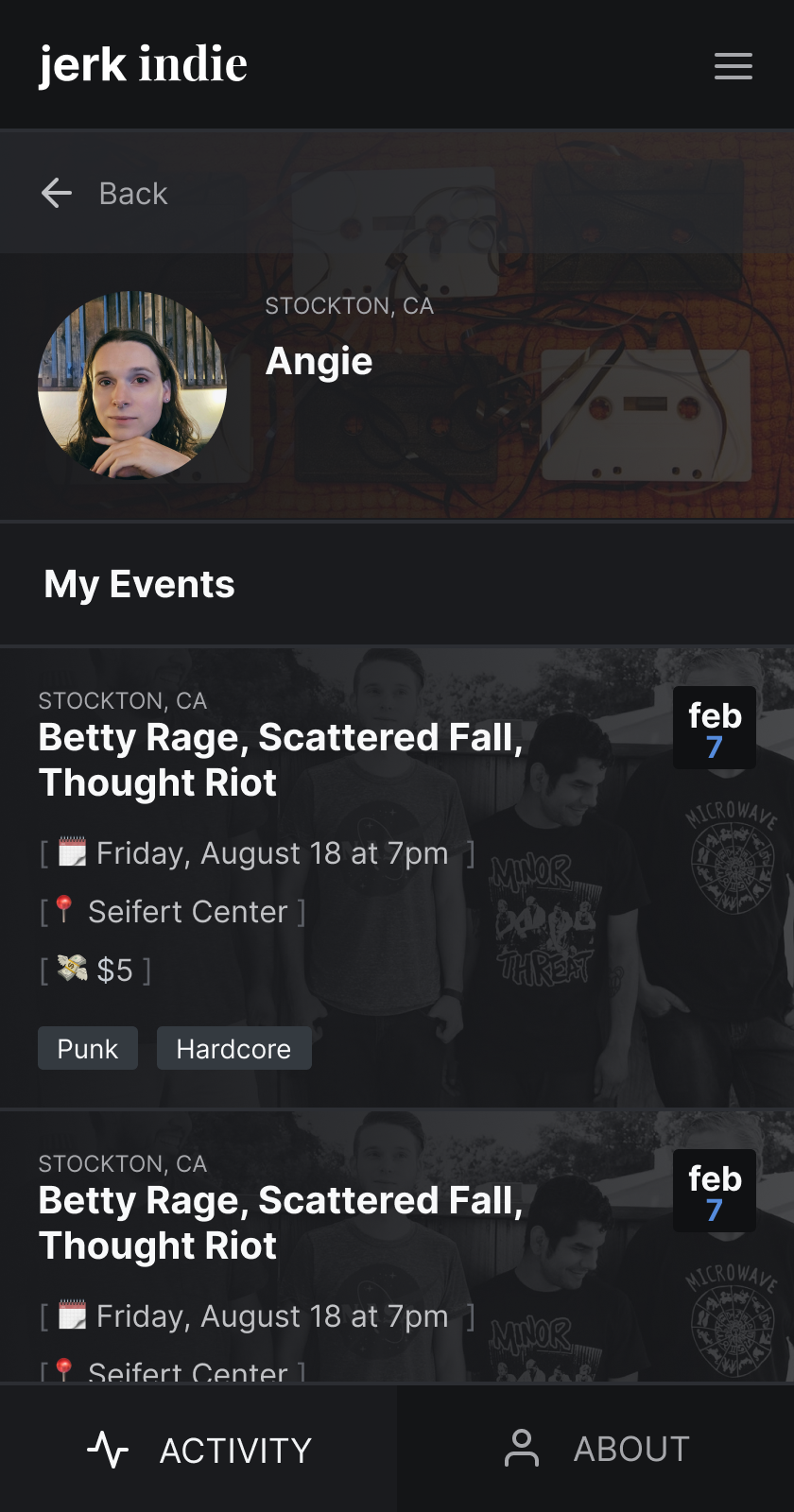
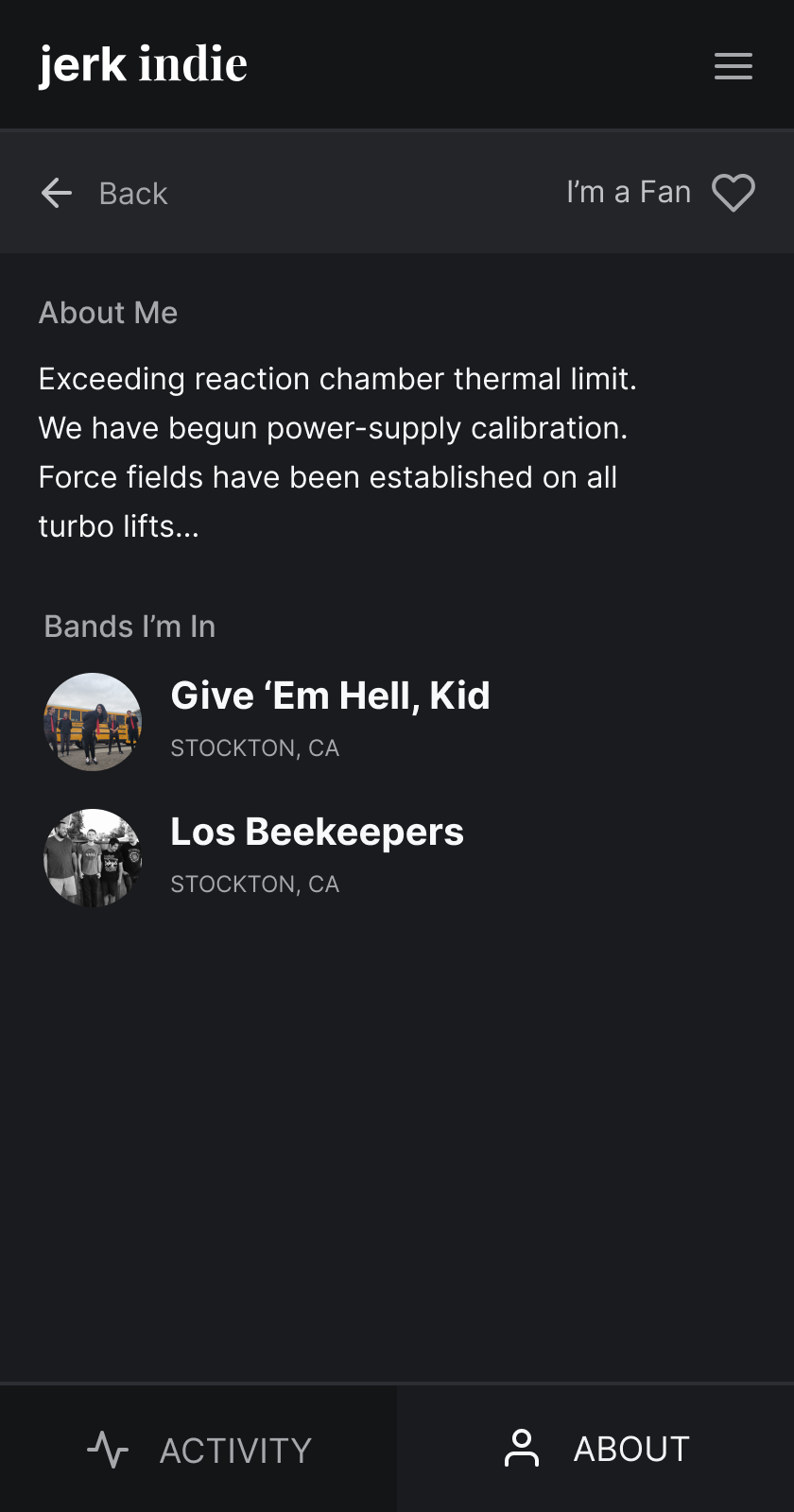
Design Approach
I designed Jerk Indie with simplicity and locality in mind. I focused on creating an intuitive event flow where bands could post shows with minimal friction, and fans could easily find and engage with events. The visual identity leaned into a DIY, punk zine-inspired aesthetic to feel familiar to the indie music scene. I worked closely with musicians in my community to test early prototypes, refine features, and ensure we were solving real pain points.
Outcome
We launched a beta version that ran for a full year in a regional test market. Over 300 regular users signed up, and the platform supported hundreds of events. Bands reported better fan turnout at shows, and fans loved having a single place to track local music. Jerk Indie proved that small scenes deserve big tools—and when you build something tailored for a community, that community shows up.
Contact

angiehemans@gmail.com
Github
Angie Hemans



Jerk Indie: events for local music scenes
Jerk Indie was a grassroots web platform built to support local music scenes. It gave bands a space to create profiles, promote their shows, and connect with fans—while fans could follow bands, save shows, and share their own event experiences. We ran a beta version for a year, grew a community of over 300 regular users, and helped promote hundreds of live events.
My Contribution
UX/UI Design
Development
The Problem
Local music scenes often operate without centralized tools for promotion or discovery. Bands depend on scattered social media posts, word of mouth, or DIY promotion. Platforms like Bandsintown and Eventbrite tend to prioritize sponsored events, national tours, or large cities—making it nearly impossible for smaller bands in mid-sized or rural areas to gain visibility. As a result, fans miss out on local shows, and artists lose opportunities to build their following.


The Goal
Create a grassroots platform tailored to smaller music communities that helps bands promote their shows, connect with fans, and build local momentum—without being buried under pay-to-play algorithms or big-market bias.
Users
- Bands and Musicians: Independent and local acts looking for a simple way to promote shows and grow their audience.
- Fans and Showgoers: Music lovers who want to follow local bands, discover new events, and stay plugged into their scene.
Key Features
- Band profiles with upcoming events and past shows
- Event pages that automatically link all performing bands
- Fan accounts with the ability to follow bands and save events
- Event pages with comment threads and photo uploads post-show
- A community-oriented feed to surface upcoming local events


Design Approach
I designed Jerk Indie with simplicity and locality in mind. I focused on creating an intuitive event flow where bands could post shows with minimal friction, and fans could easily find and engage with events. The visual identity leaned into a DIY, punk zine-inspired aesthetic to feel familiar to the indie music scene. I worked closely with musicians in my community to test early prototypes, refine features, and ensure we were solving real pain points.
Outcome
We launched a beta version that ran for a full year in a regional test market. Over 300 regular users signed up, and the platform supported hundreds of events. Bands reported better fan turnout at shows, and fans loved having a single place to track local music. Jerk Indie proved that small scenes deserve big tools—and when you build something tailored for a community, that community shows up.
Contact

angiehemans@gmail.com
Github